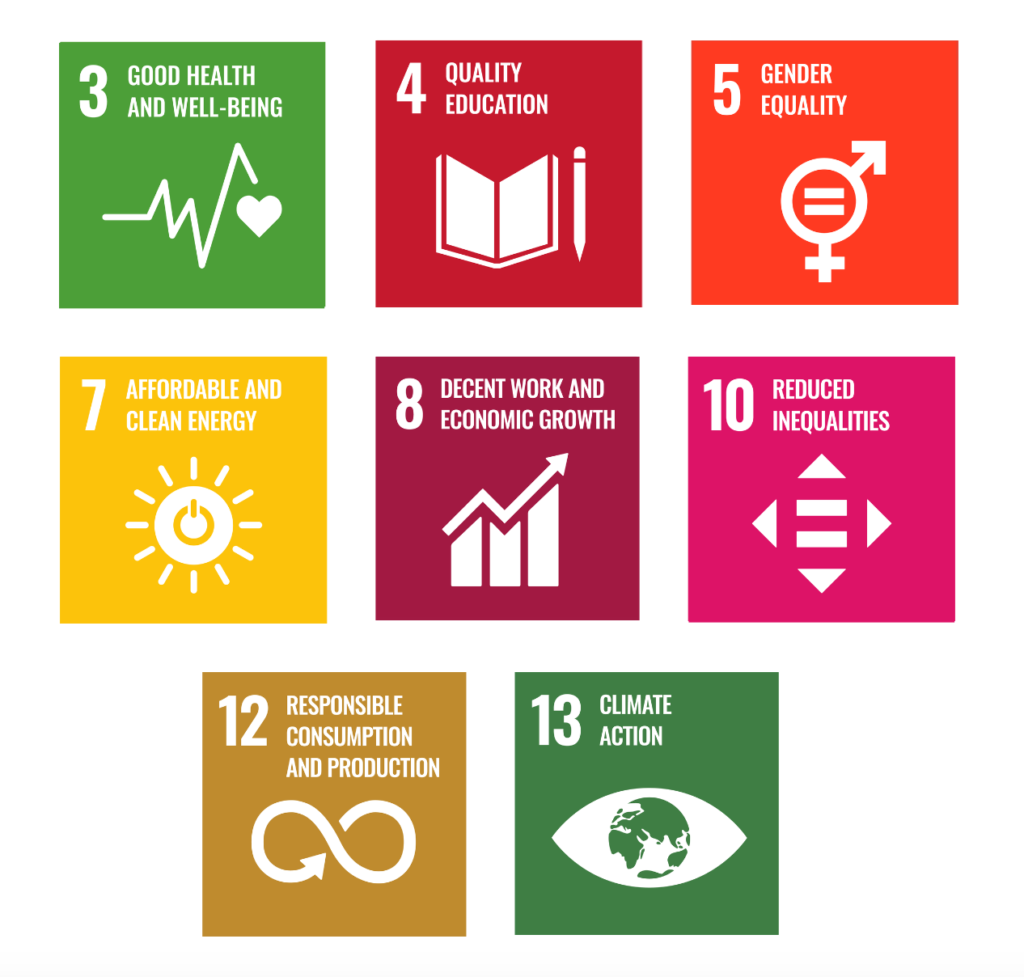Context
In the era of globalization and increasing interconnection between nations, the importance of sustainable development has become a fundamental concern on an international scale. Complex and interdependent challenges such as climate change, poverty, environmental degradation, inequalities, and the global health crisis, to name just a few examples, transcend national borders. These problems require global solutions and unprecedented cooperation between countries, businesses, non-governmental organizations, and citizens worldwide.
This evolution towards an increased awareness of sustainability and global responsibility is based on several key factors. The United Nations Sustainable Development Goals (SDGs), adopted in 2015 as part of the 2030 Agenda, have laid out a universal roadmap for a more equitable, sustainable, and resilient future. At the same time, international agreements, such as the Paris Climate Agreement, have reinforced the need for concerted global action to mitigate the effects of climate change. Increasing stakeholder pressures, scarcity of natural resources, business competitiveness, and reputational impact have also contributed to placing sustainability at the heart of global concerns.
In the era of globalization and increasing interconnection between nations, the importance of sustainable development has become a fundamental concern on an international scale. Complex and interdependent challenges such as climate change, poverty, environmental degradation, inequalities, and the global health crisis, to name just a few examples, transcend national borders. These problems require global solutions and unprecedented cooperation between countries, businesses, non-governmental organizations, and citizens worldwide.
This evolution towards an increased awareness of sustainability and global responsibility is based on several key factors. The United Nations Sustainable Development Goals (SDGs), adopted in 2015 as part of the 2030 Agenda, have laid out a universal roadmap for a more equitable, sustainable, and resilient future. At the same time, international agreements, such as the Paris Climate Agreement, have reinforced the need for concerted global action to mitigate the effects of climate change. Increasing stakeholder pressures, scarcity of natural resources, business competitiveness, and reputational impact have also contributed to placing sustainability at the heart of global concerns.
In this context, the governments of Quebec and Canada have resolutely committed to the path of sustainable development by adopting a series of policies and implementing programs and measures based on provincial and federal Sustainable Development Acts and integrated into their respective Government Sustainable Development Strategies (see Quebec and Canada). As a major player in the construction materials sales and distribution sector in Quebec, Groupe Lefebvre recognizes the growing importance of environmental, social, and governance (ESG) issues. In this sense, it appears crucial for Groupe Lefebvre to position itself in favor of sustainable development and to contribute to it.
Social Impact
Corporate Governance
Sustainable Development Goals

Environmental Aspects
1. Environmental Footprint
Objective
Goal
Strategies
- Increase the energy efficiency of our activities and sites
- Increase the use of renewable energy
- Raise employee awareness on environmental protection
- Optimize processes to eliminate waste
2. Sustainable Sourcing
Objective
Goal
Strategies
- Promote the purchase of sustainable Quebec-made products
- Encourage sourcing from companies that share our values
Social Aspects
1. Well-being at Work
Objective
Goal
Strategies
- Promote employees’ mental health
- Support work-life balance
- Encourage professional development of employees
- Create a fair, diverse, and inclusive environment
2. Health and Safety
Objective
Goal
Strategies
- Provide training and development for employees
- Identify and reduce potential risks
3. Corporate Citizenship
Objective
Goal
Strategies
- Increase long-term partnerships with local organizations
- Contribute to the creation of local jobs
- Promote employee and partner engagement in local causes
Governance Aspects
1. Transparency and Ethics
Objective
Goal
Strategies
- Develop an ethical code of conduct and internal policies to guide business practices
- Promote transparency by communicating ESG information using a proactive approach based on frequent reporting
- Raise awareness of compliance with ethical standards through a system of control and verification
2. Board of Directors and ESG Committee
Objective
Goal
Strategies
- Encourage the integration of ESG governance within the organizational structure and clarify the roles of the board of directors
- Oversee and monitor the ESG plan through the Corporate Responsibility (CR) Committee as an advisory body
- Identify transparency and ethics risks to make optimal decisions
3. Responsible Supply Chain
Objective
Goal
Strategies
- Assess and monitor ESG practices within the supply chain
- Encourage supplier engagement with the Lefebvre Group’s standards, monitor their compliance, and take appropriate action in case of violations
- Integrate ESG criteria into supplier selection processes and contracts


